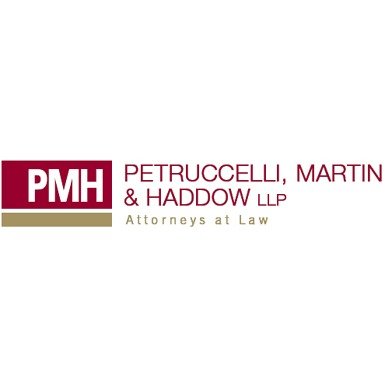Best Legal Document Lawyers in Maine
Share your needs with us, get contacted by law firms.
Free. Takes 2 min.
Or refine your search by selecting a city:
List of the best lawyers in Maine, United States
United States Legal Document Legal Questions answered by Lawyers
Browse our 2 legal questions about Legal Document in United States and read the lawyer answers, or ask your own questions for free.
- Confirming the authenticity of a divorce decree
- I'm married to a Nigerian, and I believe he provided a fake divorce decree, I need help to confirm this decree.
-
Lawyer answer by Nomos Legal Practice
Thank you and best regards, Kingsley Izimah, Esq. SK Solicitors
Read full answer - How do I legally protect my idea before selling or licensing it to a company?
- I have a makeup product idea that I want to sell or license, not the product itself. It is influenced by a product that was recently launched. Therefore, I want to sell/license to the company that launched said product. After some research, I contacted a patent attorney who explained that... Read more →
-
Lawyer answer by P.O OHIKHENA & Co
Good day,A patent will not be applicable since it's still an idea. You can go into an MOU(Memorandum of understanding) with the said company and also an NDA.You can contact me for my insight. Visit our profile and send us...
Read full answer
About Legal Document Law in Maine, United States
Legal document law in Maine governs how various types of legal documents are prepared, executed, witnessed, notarized, and filed within the state. Legal documents can include contracts, wills, powers of attorney, deeds, affidavits, and more. These documents play a crucial role in protecting rights, clarifying agreements, and ensuring compliance with Maine's state laws. Understanding Maine’s legal document requirements is important whether you are creating a simple contract or handling complex estate matters.
Why You May Need a Lawyer
There are several situations where consulting a lawyer who is experienced in legal documents can be beneficial:
- Drafting or reviewing contracts to prevent disputes
- Preparing a will or trust to ensure your wishes are legally valid
- Navigating the process of buying or selling real estate and handling deeds
- Appointing a power of attorney for healthcare or finances
- Responding to a legal summons or court order
- Ensuring business formation documents comply with Maine law
- Executing notarized documents in a way that will stand up in court
- Resolving family law issues, such as prenuptial agreements or custody arrangements
- Filing affidavits or other court documents correctly
- Ensuring compliance with state-specific requirements that affect the legality of your document
Local Laws Overview
Maine enforces specific statutes and procedures concerning the creation and use of legal documents. Some key elements include:
- Notarization requirements for documents such as deeds, powers of attorney, and affidavits
- Mandatory language that must be included in certain documents for them to be enforceable
- Execution formalities for wills and other estate planning documents, such as the need for witnesses
- Specific forms required for court filings and government submissions
- Differing requirements for commercial and residential real estate transactions
- Document retention policies for businesses and legal entities
- Recognition and limits of electronic signatures under Maine’s Uniform Electronic Transactions Act
- Privacy regulations that control the sharing of sensitive information on legal forms
Frequently Asked Questions
What is a legal document?
A legal document is any written instrument that creates, defines, or affects legal rights and obligations. Common examples include contracts, leases, wills, and affidavits.
Do legal documents need to be notarized in Maine?
Some legal documents require notarization for validity, such as deeds, powers of attorney, and affidavits. Not all documents must be notarized, but doing so can add credibility and legal enforceability.
Can I draft my own legal documents in Maine?
Individuals are allowed to draft their own legal documents, but professional guidance is recommended to ensure compliance with state laws. Errors or omissions can render a document unenforceable or cause legal complications.
Are electronic signatures valid on legal documents in Maine?
Yes, electronic signatures are recognized in Maine under the Uniform Electronic Transactions Act, provided certain security and authentication requirements are met.
How many witnesses are required for a will in Maine?
A will in Maine must be signed by the testator and witnessed by at least two individuals who are not beneficiaries under the will.
What is a power of attorney, and how is it used?
A power of attorney is a legal document that grants someone authority to act on your behalf in financial, legal, or medical matters. It must be signed and usually notarized to be effective in Maine.
How do I legally transfer property through a deed in Maine?
Property transfer requires a properly executed and notarized deed, which must then be recorded with the local county Registry of Deeds.
What happens if a legal document is not executed properly?
Improper execution can make a document legally void or unenforceable. This can lead to disputes, delays, or loss of legal rights or benefits.
Are legal forms from the internet valid in Maine?
Online legal forms can be valid if they comply with Maine law, but details often vary by state. It is important to review or modify forms to meet Maine’s specific requirements.
When should I consult a Maine attorney about legal documents?
You should consult an attorney whenever you are unsure about requirements, need a document customized for your circumstances, or face a situation with potential legal or financial consequences.
Additional Resources
For more information, you can contact the following Maine-based resources:
- Maine State Bar Association
- Legal Services for Maine Elders
- Pine Tree Legal Assistance
- Maine Judicial Branch (regarding court form requirements and filings)
- Local Registry of Deeds in each Maine county
- Maine Department of the Secretary of State (for business filings and records)
Next Steps
If you need legal assistance with preparing, reviewing, or executing legal documents in Maine, it is best to:
- Gather all relevant information and paperwork regarding your legal document needs
- Identify whether your matter involves property, estate planning, contracts, court filings, or business law
- Reach out to a local attorney who is experienced in the specific area of law you need
- Prepare a list of your questions before consulting a legal professional
- Review any legal documents or forms with your attorney before signing
- Ensure all signatures, notarizations, or witnesses are completed as required by Maine law
- Retain copies of all signed documents for your records
Taking these steps will help ensure your legal documents are both effective and compliant with Maine law, protecting your rights and interests now and in the future.
Lawzana helps you find the best lawyers and law firms in Maine through a curated and pre-screened list of qualified legal professionals. Our platform offers rankings and detailed profiles of attorneys and law firms, allowing you to compare based on practice areas, including Legal Document, experience, and client feedback.
Each profile includes a description of the firm's areas of practice, client reviews, team members and partners, year of establishment, spoken languages, office locations, contact information, social media presence, and any published articles or resources. Most firms on our platform speak English and are experienced in both local and international legal matters.
Get a quote from top-rated law firms in Maine, United States — quickly, securely, and without unnecessary hassle.
Disclaimer:
The information provided on this page is for general informational purposes only and does not constitute legal advice. While we strive to ensure the accuracy and relevance of the content, legal information may change over time, and interpretations of the law can vary. You should always consult with a qualified legal professional for advice specific to your situation.
We disclaim all liability for actions taken or not taken based on the content of this page. If you believe any information is incorrect or outdated, please contact us, and we will review and update it where appropriate.
Browse legal document law firms by city in Maine
Refine your search by selecting a city.











